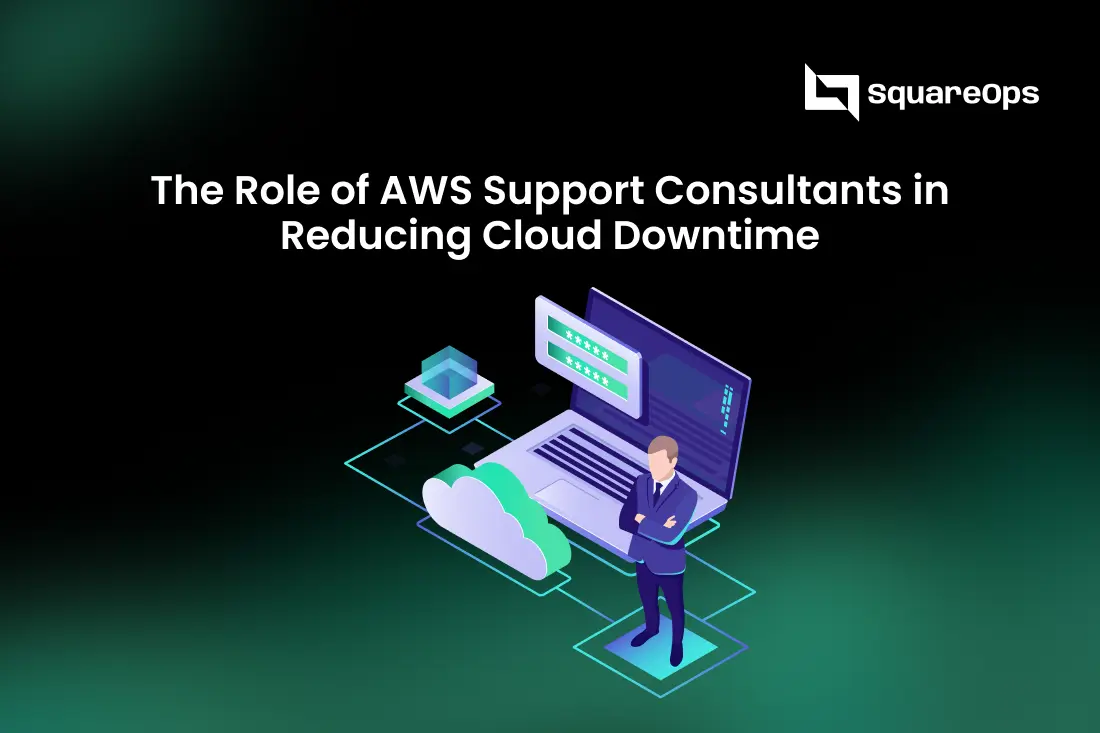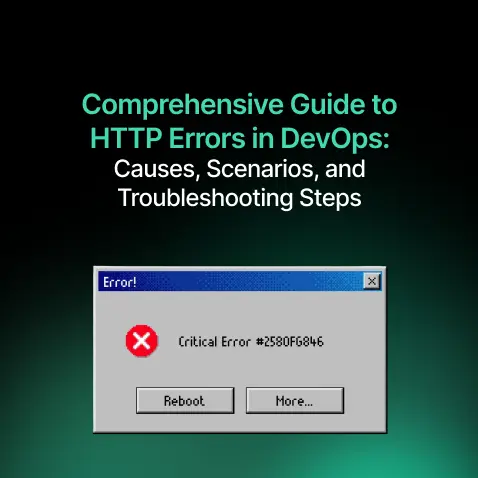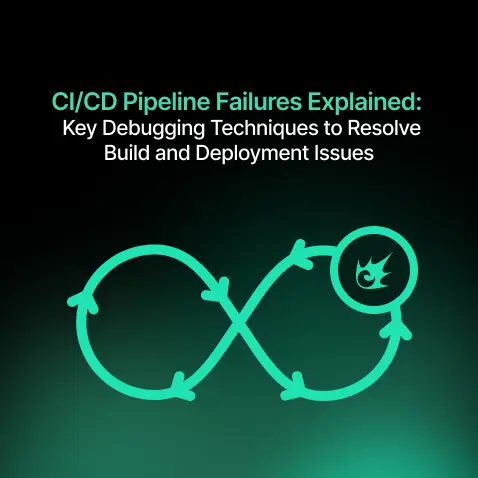The Role of AWS Support Consultants in Reducing Cloud Downtime
- Nitin Yadav
- Knowledge
About

Reduce downtime and improve uptime with expert AWS support consultants. Learn how consulting cuts outages by 60% using monitoring, DR planning, and optimization.
Industries
- AWS architecture audit, AWS cloud consulting, AWS cloud cost optimization, AWS cloud monitoring, AWS cloud reliability, AWS Consulting Services, AWS disaster recovery, AWS downtime solutions, AWS managed services, AWS managed services vs consulting, AWS performance optimization, AWS support consultant, AWS support consulting, AWS uptime optimization, AWS uptime SLA
Share Via
Cloud downtime isn’t just a technical issue it’s a business problem. According to Gartner, the average cost of IT downtime can exceed $300,000 per hour. For high-traffic e-commerce platforms or SaaS businesses, the losses can reach millions in minutes.
Amazon Web Services (AWS) provides the world’s most reliable cloud platform. However, even with AWS’s robust infrastructure, misconfigurations, scaling issues, or inadequate monitoring can still cause costly outages.
That’s where AWS support consultants step in. These experts specialize in helping enterprises reduce downtime, improve uptime, and optimize AWS environments for reliability.
What is an AWS Support Consultant?
An AWS support consultant is a certified professional who provides strategic, technical, and operational guidance to businesses running workloads on AWS.
Key Responsibilities
- Architecture Design: Building fault-tolerant and highly available AWS architectures.
- Performance Optimization: Ensuring workloads run efficiently without bottlenecks.
- Incident Response: Assisting in root-cause analysis and rapid resolution.
- Best Practices Audits: Reviewing configurations against AWS Well-Architected Framework.
- Knowledge Transfer: Training internal teams to follow reliability and security standards.
AWS Support Consulting vs Managed Services
- Consultants provide strategic, project-based guidance (migrations, audits, downtime troubleshooting).
- AWS managed service providers (MSPs) deliver ongoing 24/7 operations (monitoring, patching, daily management).
Many enterprises use both: consulting for expert guidance, and managed services for long-term uptime assurance.
Common Causes of AWS Downtime
Even with AWS’s world-class infrastructure, downtime can occur due to factors within an enterprise’s control:
- Misconfigured Infrastructure
- Incorrect IAM policies, VPC setups, or security groups can block traffic or cause failures.
- Incorrect IAM policies, VPC setups, or security groups can block traffic or cause failures.
- Scaling Challenges
- Poorly designed auto-scaling policies fail to handle traffic spikes, leading to outages.
- Poorly designed auto-scaling policies fail to handle traffic spikes, leading to outages.
- Monitoring Gaps
- Lack of real-time cloud monitoring means issues are detected too late.
- Lack of real-time cloud monitoring means issues are detected too late.
- Security Incidents
- Attacks like DDoS or mismanaged credentials can cause downtime.
- Attacks like DDoS or mismanaged credentials can cause downtime.
- Human Error
- Deployments without automation or CI/CD checks lead to service crashes.
- Deployments without automation or CI/CD checks lead to service crashes.
- Dependency Failures
- Outages in integrated third-party systems cause cascading failures
An AWS support consultant addresses these risks with proactive planning and fast remediation.
How AWS Support Consultants Help Reduce Downtime
An experienced AWS support consultant applies proven strategies to minimize downtime and keep systems running smoothly.
1. Proactive Monitoring and Alerting
- Set up real-time cloud monitoring solutions (CloudWatch, Datadog).
- Establish custom metrics and alerts for anomalies.
- Ensure teams are notified before issues escalate into outages.
2. Designing Fault-Tolerant Architectures
- Multi-AZ (Availability Zone) and Multi-Region deployments.
- Load balancing across services.
- Disaster recovery setups with backup and restore automation.
3. Disaster Recovery (DR) Planning
- Implement RTO (Recovery Time Objective) and RPO (Recovery Point Objective) strategies.
- Automate snapshots, failovers, and data replication.
- Test DR plans regularly to ensure effectiveness.
4. Performance Optimization
- Identify bottlenecks in EC2, RDS, or S3 usage.
- Rightsize instances to balance cost and performance.
- Apply caching strategies (CloudFront, ElastiCache).
5. Faster Incident Response
- Root-cause analysis using logs, metrics, and traces.
- Predefined playbooks for common failure scenarios.
- Reduced MTTR (Mean Time to Recovery).
6. Security Hardening
- Implement AWS Shield, WAF, and IAM best practices.
- Proactively prevent security-driven downtime.
- Ensure compliance with industry standards (GDPR, HIPAA, ISO).
Benefits of AWS Support Consulting
Engaging AWS support consulting services offers multiple business and technical benefits:
- Higher Uptime
- Reduced downtime incidents through proactive planning.
- Improved SLA compliance (99.9%–99.99% uptime).
- Reduced downtime incidents through proactive planning.
- Reduced Operational Risks
- Secure, compliant, and well-architected infrastructure.
- Secure, compliant, and well-architected infrastructure.
- Cost Savings
- Optimized use of AWS cloud credits, RIs, and scaling policies.
- Optimized use of AWS cloud credits, RIs, and scaling policies.
- Stronger Security Posture
- Prevention of attacks that could cause downtime.
- Prevention of attacks that could cause downtime.
- Internal Upskilling
- Teams gain knowledge from expert consultants, reducing reliance on external help.
Case Study: E-Commerce Company Cuts Downtime by 60%
Background:
An e-commerce company on AWS experienced frequent outages during peak sales seasons, resulting in lost revenue and customer dissatisfaction.
Challenges:
- Auto-scaling failed during traffic spikes.
- No disaster recovery plan in place.
- Monitoring gaps delayed incident response.
Solution (AWS Support Consulting):
- Redesigned infrastructure with Multi-AZ deployments.
- Configured auto-scaling with predictive scaling policies.
- Implemented CloudWatch + Datadog monitoring with custom alerts.
- Developed a disaster recovery plan with automated failover.
Results:
- Downtime incidents reduced by 60%.
- Average recovery time improved by 50%.
- Customer satisfaction and trust significantly improved.
AWS Support Consulting vs AWS Managed Services
Many enterprises ask: Do we need AWS consulting, managed services, or both?
- AWS Support Consulting is best for:
- Cloud migrations.
- Architecture audits.
- Downtime troubleshooting.
- One-time projects.
- Cloud migrations.
- AWS Managed Services is best for:
- Ongoing 24/7 monitoring.
- Infrastructure management.
- Security patching and backups.
- Continuous cost optimization.
- Ongoing 24/7 monitoring.
Best Practice: Begin with AWS support consulting for strategic guidance, then adopt managed services for long-term operational efficiency.
The Future of AWS Support Consulting (2025 and Beyond)
As cloud systems grow more complex, AWS consulting will evolve too:
- AI-Driven Incident Detection
- Machine learning models predicting failures before they occur.
- Machine learning models predicting failures before they occur.
- Integration with Site Reliability Engineering (SRE)
- Consulting aligned with error budgets, SLOs, and proactive reliability.
- Consulting aligned with error budgets, SLOs, and proactive reliability.
- Multi-Cloud and Hybrid Consulting
- Expertise in AWS + Azure + GCP environments.
- Expertise in AWS + Azure + GCP environments.
- Security-First Consulting
- Focus on DevSecOps and compliance automation.
- Focus on DevSecOps and compliance automation.
- Outcome-Based Engagements
- Consultants measured by uptime improvements, not hours worked.
Conclusion
Cloud downtime is costly, but it doesn’t have to be inevitable. With expert AWS support consulting, enterprises can:
- Build fault-tolerant architectures.
- Detect and resolve incidents faster.
- Reduce downtime by up to 60%.
- Ensure compliance and customer trust.
At SquareOps, our AWS support consultants specialize in helping enterprises achieve 99.99% uptime with proactive monitoring, disaster recovery planning, and cost optimization.
Ready to reduce downtime and improve uptime reliability?
Book a Free AWS Support Consultation with SquareOps today.
Frequently asked questions
An AWS support consultant provides expert guidance on AWS architecture, monitoring, performance optimization, and incident response to help enterprises reduce downtime and improve uptime
AWS support consulting reduces downtime by implementing proactive monitoring, designing fault-tolerant systems, optimizing scaling policies, and ensuring faster root-cause analysis during incidents.
Frequent causes include misconfigured infrastructure, poor auto-scaling policies, inadequate monitoring, security incidents, and human errors during deployments.
An AWS support consultant offers short-term, strategic guidance (audits, migrations, troubleshooting), while an AWS managed service provider delivers long-term, 24/7 cloud operations and monitoring.
Yes. AWS support consultants design and implement disaster recovery strategies, including multi-region failover, automated snapshots, and recovery testing to minimize downtime
AWS support services improve uptime by monitoring workloads in real-time, enforcing best practices, automating scaling, and providing incident response to quickly restore services.
No. Both startups and enterprises benefit from AWS support consulting. Startups use consultants for migrations and cost optimization, while enterprises rely on them for uptime and compliance.
They implement AWS Shield, WAF, IAM best practices, and compliance frameworks like GDPR or HIPAA to prevent security incidents that cause downtime.
Benefits include reduced downtime, cost savings, higher SLA compliance, improved customer satisfaction, and better-trained internal teams.
SquareOps provides AWS support consulting services that focus on proactive monitoring, incident response, and architecture optimization to help enterprises achieve 99.99% uptime.
Related Posts

Comprehensive Guide to HTTP Errors in DevOps: Causes, Scenarios, and Troubleshooting Steps
- Blog

Trivy: The Ultimate Open-Source Tool for Container Vulnerability Scanning and SBOM Generation
- Blog

Prometheus and Grafana Explained: Monitoring and Visualizing Kubernetes Metrics Like a Pro
- Blog

CI/CD Pipeline Failures Explained: Key Debugging Techniques to Resolve Build and Deployment Issues
- Blog

DevSecOps in Action: A Complete Guide to Secure CI/CD Workflows
- Blog

AWS WAF Explained: Protect Your APIs with Smart Rate Limiting
- Blog

